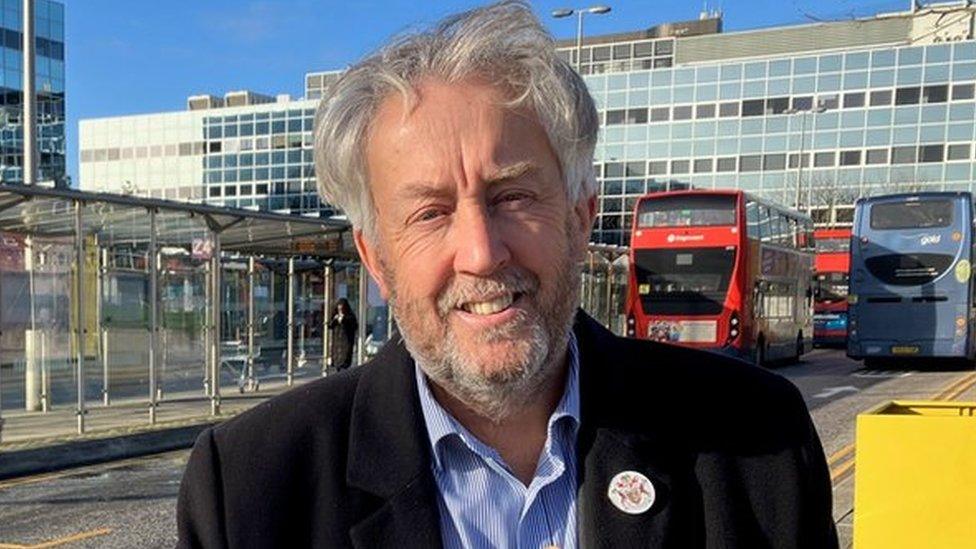Plan for councils to decide bus routes welcomed
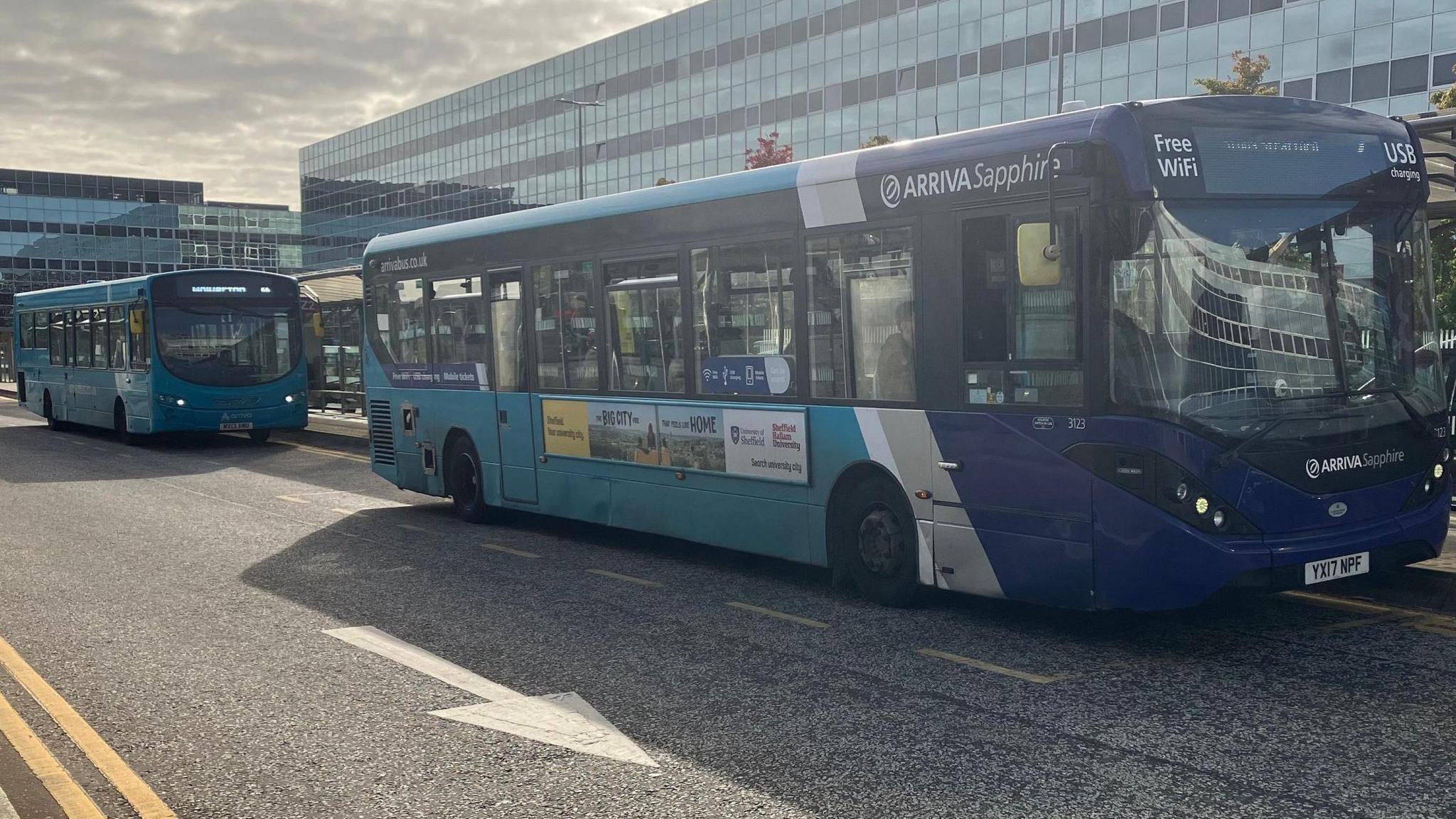
A motion for the council in Milton Keynes to run its buses received cross party support two years ago.
- Published
A council welcomed government plans to give local authorities more control over bus services.
New legislation was being considered to bring in a franchising system that would give councils the power to decide routes, timetables and fares, with operators bidding for contracts.
Milton Keynes City Council previously backed a motion two years ago to have a greater contol after councillors agreed that thousands of passengers were being let down by a poor provision of services.
Councillor Jennifer Wilson-Marklew said "franchising is really promising" but what do residents and bus users think?
'No service'
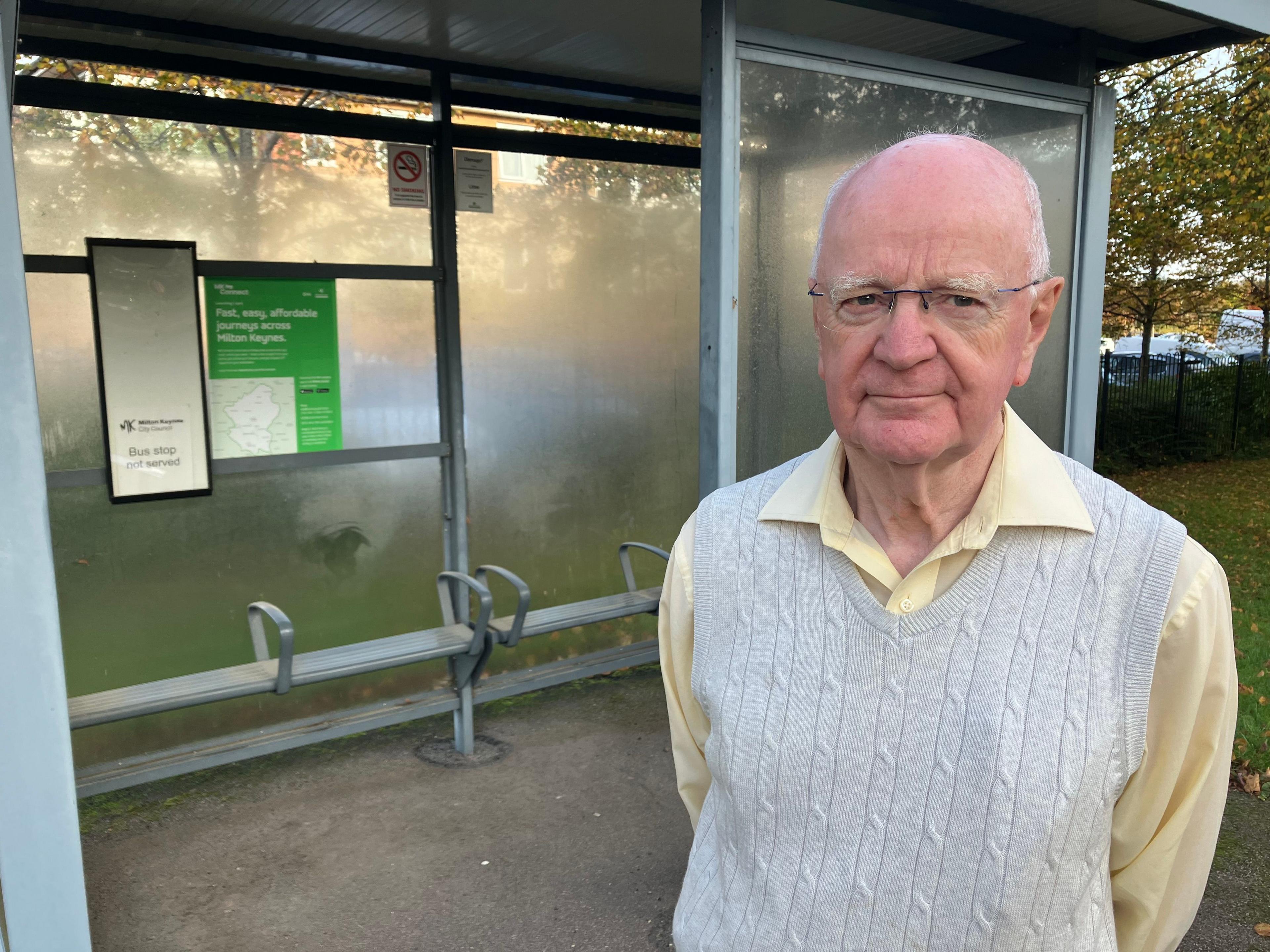
David Tunney from the Shenley Retirement Village said a bus service is desperately needed for people there who are feeling isolated
The Shenley Retirement Village is three miles away from Milton Keynes' main shopping area and home to around 308 residents, all aged over 55.
It has two bus stops outside its entrance, but at the moment neither can be used because there was no service to the city centre.
"Roughly half of the people in the village do not have access to a car and many are elderly and have problems walking," David Tunney, who is one of the residents, said.
"The bus service is desperately needed for those people who are feeling particularly isolated, mentally depressed and trapped within the village."
'New powers need new funding'
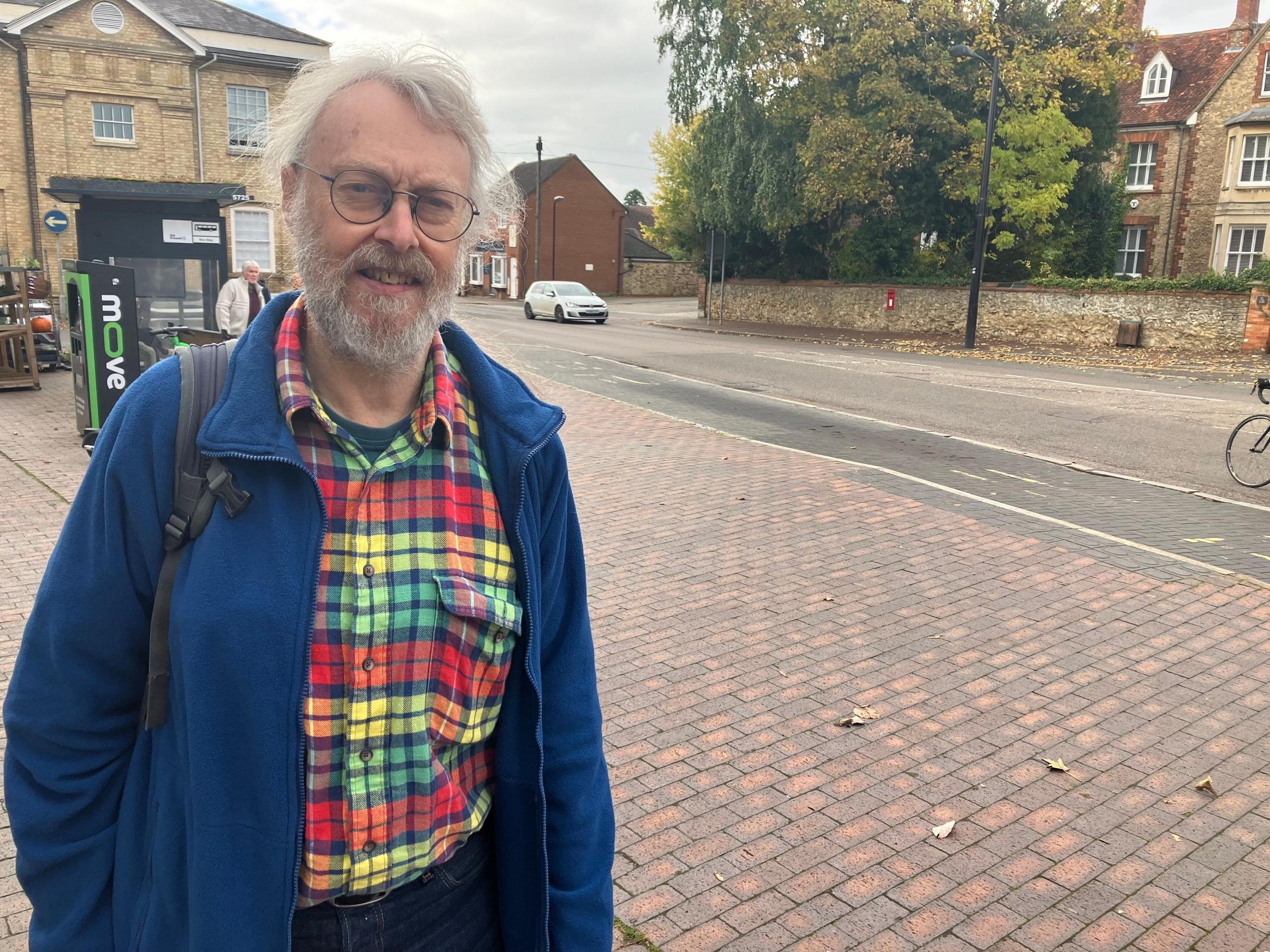
Alan Francis from the MK Bus Users Group said the powers being considered by the government were no good without funding
After getting off the No.2 service to Newport Pagnell, Alan Francis from the Milton Keynes Bus Users Group cautiously welcomed the idea of local authorities running services.
"This is what passengers want because they can lobby the council who are much more responsive to what local people want," he said.
"If the council was funding the buses then it would be able to set the times and the frequency, including the times of the first and last buses on the route."
However, he warned: "The powers that are being offered by the government to the council are no good without some funding attached."
In the recent budget, the government announced almost £1bn "to deliver high quality services and protect vital bus routes up and down the country".
However, it is not known if part of that money would be given to councils as part of the franching idea.
It also raised the fare cap to £3 a journey . Despite the increase, it hoped that more people would travel by bus and the amount of money going into the service would rise.
"Services keep declining"
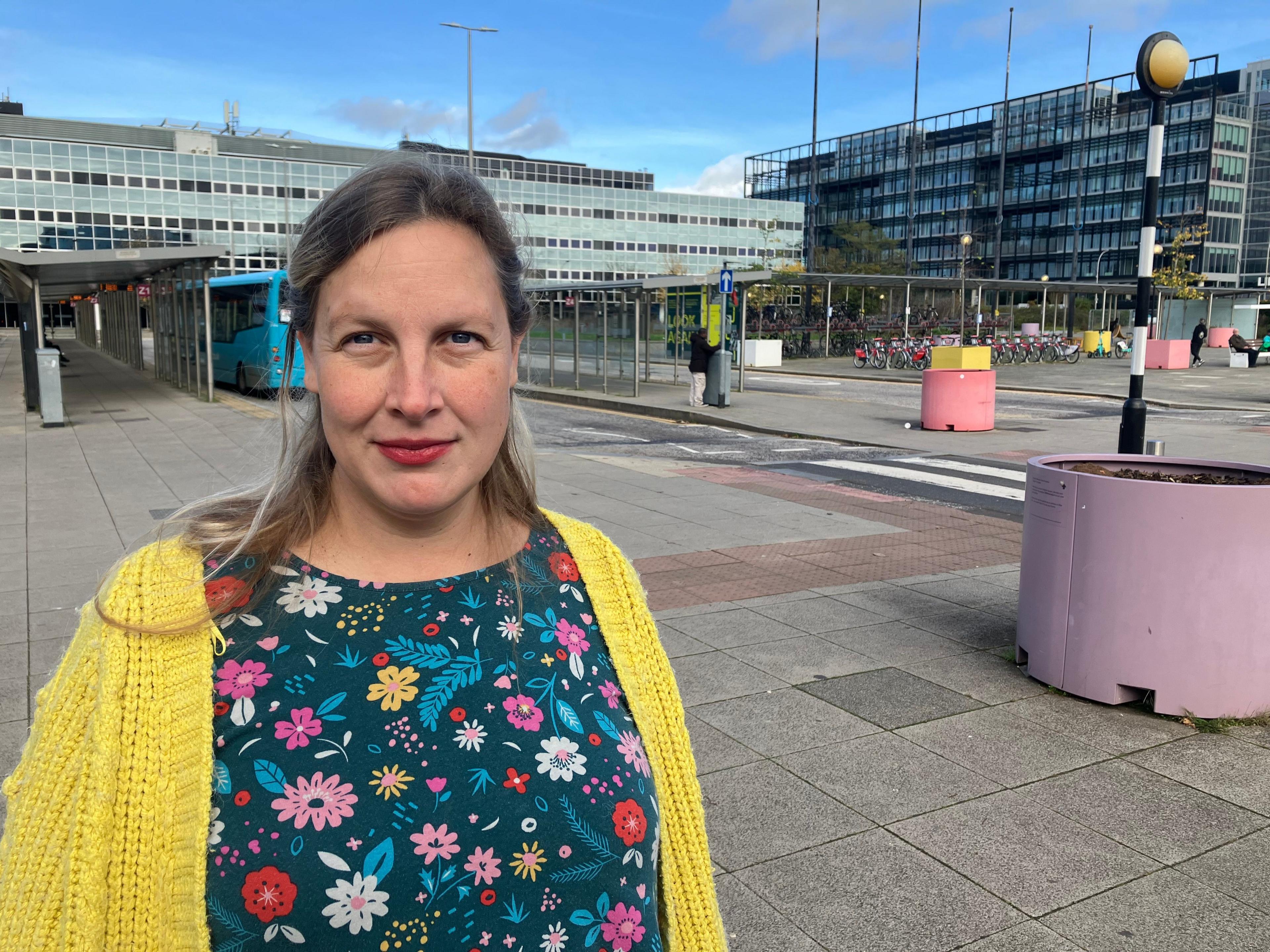
Cabinet member for public realm, Jennifer Wilson-Marklew, said the idea of franchising was something the authority was looking at.
The 1985 Conservative government, under Margaret Thatcher, introduced the Transport Act, which resulted in the privatisation of bus services. It meant that operators would only run services that made money.
Wilson-Marklew said franchising the Better Buses bill, which was expected to be debated in parliament towards the end of the year, was "really promising and it is something the council is looking at".
"As a city we have tried very, very hard to make public transport affordable and as available as possible to as many people as possible," she added.
"But the decline we have seen over the past twenty years is continuing and if anything is increasing."
She agreed that change is needed sooner rather than later and said "as long as we continue to run buses on a commercial basis, we're going to continue seeing those services decline".
Get in touch
Do you have a story suggestion for Beds, Herts & Bucks?
Follow Beds, Herts and Bucks news on BBC Sounds, Facebook, external, Instagram, external and X, external.
Related topics
Related internet links
You might also be interested in
- Published9 September 2024
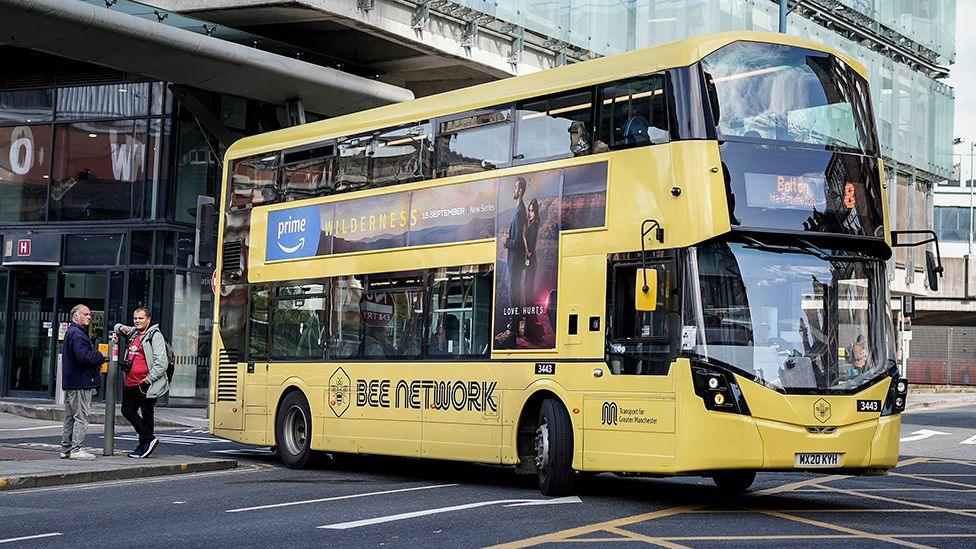
- Published14 November 2023
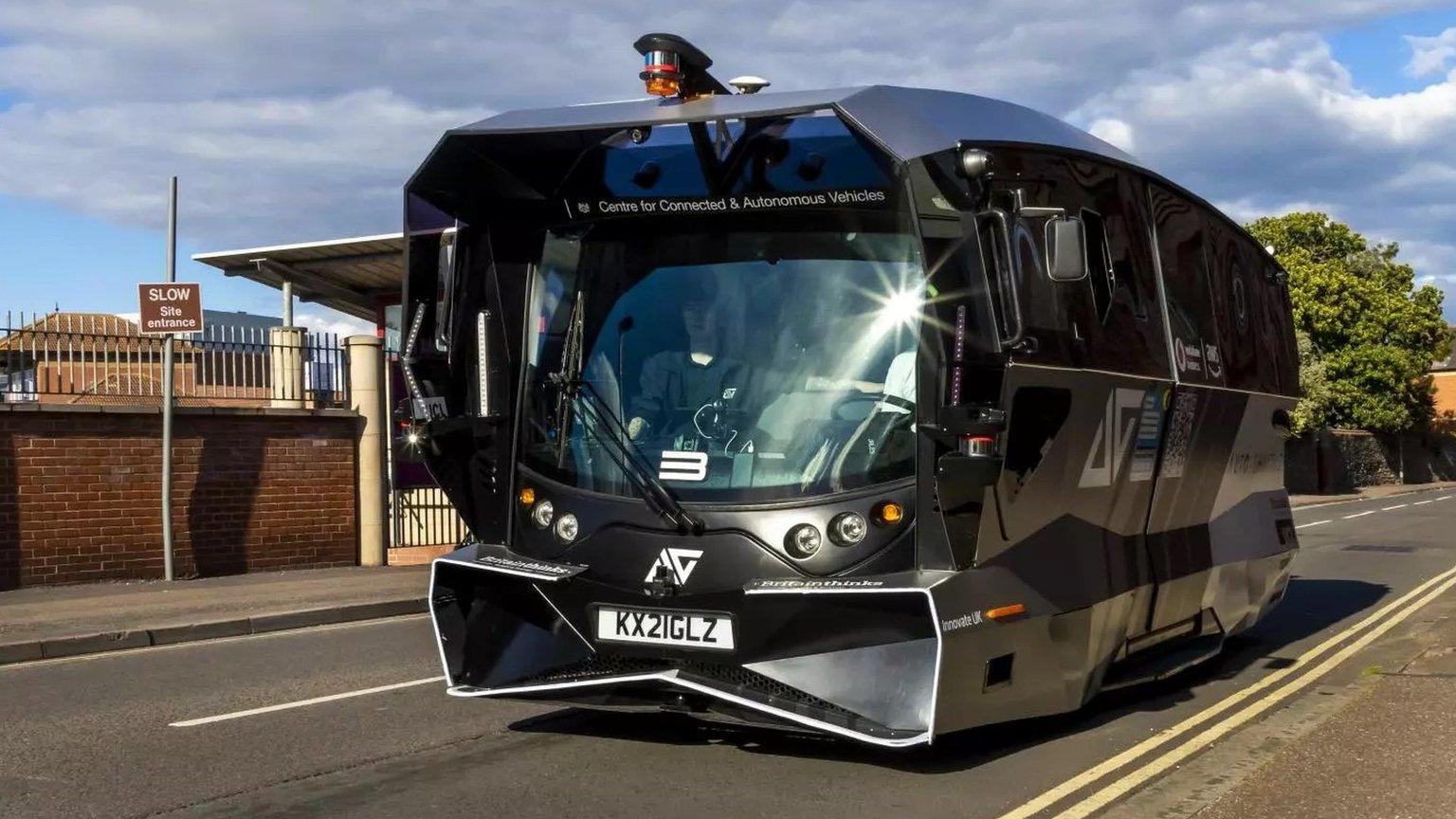
- Published24 November 2022
